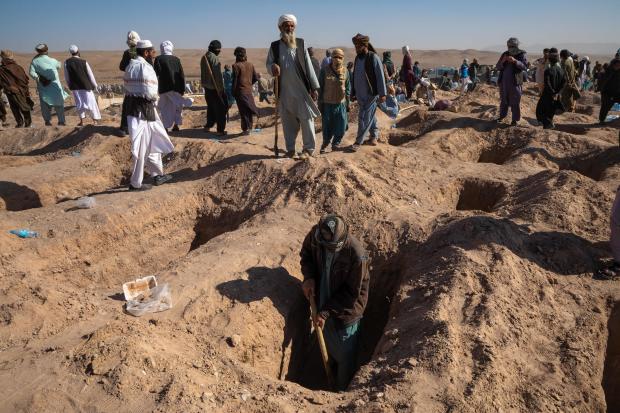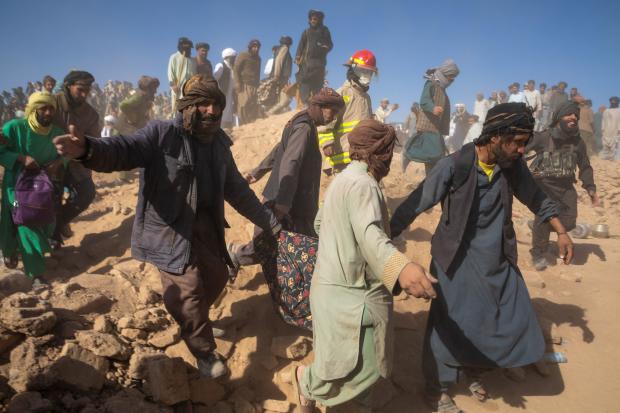Afghanistan earthquake death toll climbs amid frantic search and rescue efforts in Herat province
Afghanistan is prone to earthquakes, but the series of temblors that struck the west of the country on Saturday were the deadliest, most devastating quakes the already-crippled, Taliban-ruled nation had seen in decades.
Harrowing images of the frantic rescue efforts still ongoing Monday included video of a small child being pulled from beneath the rubble, clinging to a woman's hand. It wasn't clear whether the woman survived.
As Taliban officials put the death toll well over 2,000 — warning that many were still unaccounted for in the remote quake region — the United Nations humanitarian coordinator said a $5 million emergency reserve allocation from the Afghanistan Humanitarian Fund (AHF) had been approved.
Survivors in those decimated rural villages were still digging through debris with their bare hands Monday in a desperate attempt to reach loved ones and neighbors trapped beneath collapsed homes that never stood a chance against the force of two back-to-back 6.3 magnitude earthquakes. They were followed by several powerful aftershocks.
"2,445 people, including women and children, were killed and 2,440 people including women and children are wounded," Mullah Janan Saiq, a spokesman for Afghanistan's Ministry for Disaster Management, told CBS News on Sunday. He said the death toll was likely to continue rising.
"In total, 11,585 people (1,655 families) are assessed to have been affected" by the earthquakes the U.N. said Sunday evening, adding that "100% of homes are estimated to have been completely destroyed" in 11 villages.
According to the United States Geological Survey, the epicenters of the quakes were in the Zindajan district, about 25 miles west of Herat city, an economic and cultural hub in western Afghanistan.
While there was still hope, more people were being pulled from ruined buildings dead than alive on Monday.
Afghanistan's hospitals, already over-stretched and severely under-equipped since in the wake of the Taliban's chaotic seizure of the country, were quickly overwhelmed.
"Many of our family members have been martyred, including one of my sons," said Mir Ahmed, adding that another of his sons was injured. "Most of the people are under the rubble."
The quake struck in a rural region in western Afghanistan's Herat province, complicating the search and rescue operation as crews rushed to reach the area.
While the U.N. pledged to provide help and a number of nations lined up to offer additional aid, a number of international aid agencies pulled out of Afghanistan or greatly reduced their operations after the Taliban's summer 2021 takeover of the country.
The hard-line Islamic group has barred women from virtually any work in the country, and many non-profit groups, especially those operating at the local level, relied on female staff.
U.S. Secretary of State Antony Blinken said the U.S. was closely tracking the impact of the quakes, and "our humanitarian partners are responding with urgent aid in support of the people of Afghanistan."






